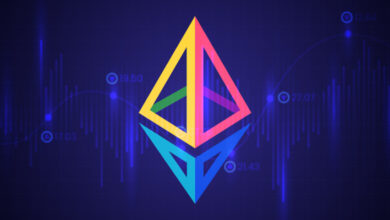Google’s New Protocol Lets AI Agents Pay Each Other—Stablecoins Included

Google has introduced an open-source payments protocol designed to let artificial-intelligence applications send and receive money, whether through traditional methods like credit cards or through blockchain-based stablecoins.
The initiative reflects a growing convergence of AI and crypto technology. Google collaborated with more than 60 partners on the project, including Salesforce, American Express, Etsy, and consulting firms such as Deloitte and PwC.
Support for stablecoin transactions was developed in close partnership with Coinbase and with input from the Ethereum Foundation.
James Tromans, who leads Web3 at Google Cloud, said the system was “built from the ground up” to accommodate both existing payment rails and emerging crypto-based methods. Coinbase’s head of engineering Erik Reppel added that the goal is to enable AI systems to transfer value directly to one another, a step toward an economy where “AI transmits value to AI.”
The new protocol extends Google’s earlier “Agent-to-Agent” framework, introduced in April, which created a common standard for communication between autonomous AI programs, or “agents.” These agents—software entities capable of making decisions without human oversight—are increasingly envisioned as financial actors. Examples include AI-powered investment advisors negotiating loans or personal-shopping bots buying goods online on a user’s behalf.
By adding payments to that framework, Google aims to ensure that transactions between such agents remain secure and verifiable while reducing the need for human intervention.
The launch underscores Big Tech’s growing interest in stablecoins, digital tokens tied to the value of the U.S. dollar or other assets. In recent months Apple, Airbnb, Meta, and Shopify have all explored or announced stablecoin integrations, encouraged by a more crypto-friendly regulatory climate in the United States.
Industry analysts see stablecoins as a natural fit for machine-to-machine commerce. Galaxy Digital CEO Mike Novogratz recently predicted that AI agents could become the largest users of stablecoins, while researchers at the Ethereum Foundation have highlighted how Ethereum’s smart-contract capabilities could support automatic, low-friction payments between autonomous agents.
With Google’s protocol now available as open source, developers across the AI and blockchain sectors can build applications that blend these technologies, laying the groundwork for a future in which digital assistants not only communicate, but also settle financial transactions on their own.





